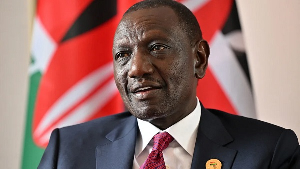To support businesses come out of the pandemic’s quagmire and hasten the so much needed economic recovery, some reforms aimed at lessening the tax burden on businesses must be implemented, global auditing giant Deloitte has proposed.
In its post-Mid-year Budget analysis report, the auditing firm has proposed a raft of measures such as the implementation of a COVID-19 tax amnesty, for say six months, to provide waivers for interest and penalties; reduction of Corporate Income Tax (CIT) rate to 20 percent for 2-3 years for most-affected industries – i.e. hospitality, tourism, aviation, private schools; and target sectors for growth such as the pharmaceutical industry.
Other measures also include the reduction of VAT rate to 12.5 percent (levies inclusive) for 2 years for most-affected industries like hospitality, tourism and aviation; additional corporate tax deduction incentive for worst-hit sector companies that maintain employees of at least 85 percent of normal staff strength by end of 2020 to help cut job losses; allowing all businesses to carry forward 2020 tax losses in subsequent years without expiration; and implementing guidelines for VAT on electronically supplied services by non-residents to raise revenue from VAT on e-commerce and telecommunication.
According to the Finance Minister, Ken Ofori-Atta, provisional fiscal data for first-half of the year show that revenue mobilisation fell short of target by 26 percent – resulting mainly from shortfalls in oil revenue, Customs receipts and non-oil Non-Tax revenues. Total Revenue and Grants for January to June 2020 amounted to GH¢22billion compared with a programmed target of GH¢29.7billion.
Non-oil tax revenue, comprising taxes on Income and Property, Goods and Services and International Trade, amounted to GH¢16.7billion or 4.3 percent of GDP – 16.2 percent below the programmed target of GH¢19.9 billion or 5.2 percent of GDP. Revenue from upstream Oil and Gas amounted to GH¢1.9billion (0.5% of GDP), 55.4 percent lower than the programmed target of GH¢4.4billion – mainly on account of lower volumes and a significant drop in crude oil prices on the international market.
To improve domestic revenue mobilisation, Deloitte has urged government to enhance property rate collection and pass the various bills – including the tax exemption bill – as they offer a lot of potential in boosting revenue generation.
“In particular, enhancement of the property rate collection system should be a key area of concentration for government, as the success with collection of property taxes has generally been low. Collaboration between the GRA and Metropolitan, Municipal and District Assemblies (MMDAs) is the way to go in ensuring that there is an improvement in the collection efforts of MMDA collection task-forces.
“In addition, we expect passage of the proposed bills into law to encourage investments and provide certainty around tax exemption processes. Given that government proposed a review of the Ghana Investment Promotion Centre Act in its 2018 budget, we expect that to be a priority among the bills proposed by the minister,” the Deloitte Mid-year budget analysis stated.
Parliament has approved government’s proposal to reduce communication service tax (CST) rate from 9 percent to 5 percent, which will take effect from September 2020. Government further intends to enforce the Value Added Tax (VAT) on commercial properties and submission of returns for gains from the realisation of assets and liabilities as a means to increase government revenue.
Mr. Ofori-Atta also revealed in parliament that some of the tax revenue mobilisation measures government plans to introduce include digitisation of tax compliance processes and tax education; frequent tax audits; implementation of an enhanced property rate collection system; implementation of the revised Transfer Pricing Regulations; and prosecution of tax offenders.
Click to view details



Business News of Monday, 10 August 2020
Source: thebftonline.com

















